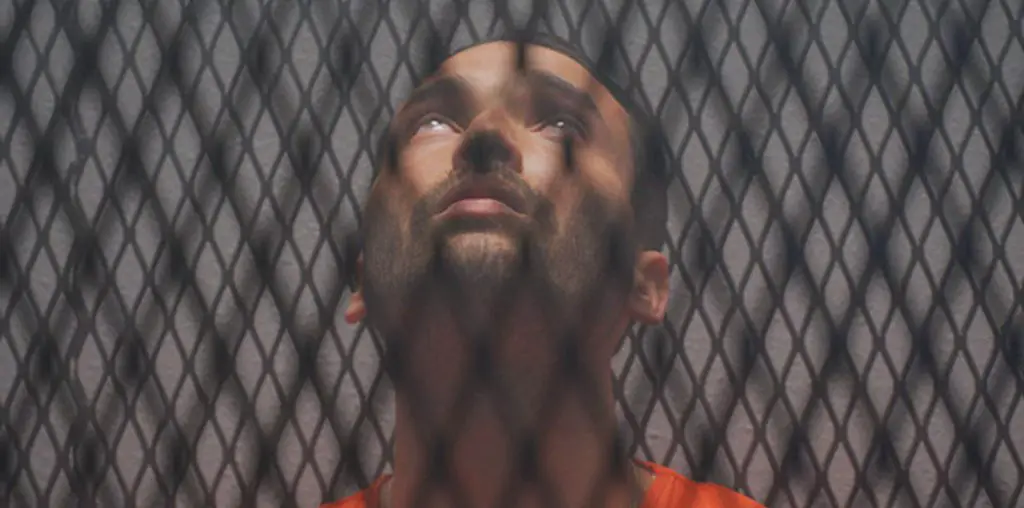
Let’s say you’re an aging seventies hippie waking up from a ripped, Rip Van Winkle – length smoking binge. Like an herb-puffing variation on Austin Powers, you’re forced to confront an uncomfortable future that’s very different from the cozy era you once inhabited. You find out that Billabong has nothing to do with pot paraphernalia, and discover that Papa Roach is a band, not a joint. Meanwhile, your idol and role model Tommy Chong recently served nine months in a federal penitentiary. What has the world come to?
“A/K/A Tommy Chong” might be a gentle way of orienting yourself to the current, doper-hating political climate. The debut feature film of director Josh Gilbert, “A/K/A Tommy Chong” chronicles how the latter half of legendary blunt-burners Cheech and Chong was targeted by the DEA in 2003, busted for online bong manufacturing, and thrown in prison.
Cheech Marin and Tommy Chong first hooked up in Vancouver, Canada. Following that fateful first meeting in 1969, the comedy duo became pipe-puffing parodists whose records and films were embraced by the next decade’s thriving counterculture. Who could forget scenes of the wasted duo stumbling from a van, enshrouded in enormous clouds of marijuana smoke? 1978’s hit “Up In Smoke” spearheaded a string of stoner cinema that saw the red-eyed comedians become icons for legions of potheads worldwide. “A/K/A Tommy Chong” introduces their audience through a helpful montage, in which fans describe how to fabricate pot pipes from apples, potatoes, mag lights, pimento jars, and gas masks.
But times changed. As “A/K/A Tommy Chong” begins, we’re whisked down the interstate towards wire-wrapped, cement-encrusted Taft Correctional Institution. Inside, we meet cell inhabitant Chong, looking more refined than he did in his hemp-inhaling heyday. His waist-long, untamed mane is replaced by short, gray hair. Sporting a tan prison jumpsuit, Chong reminisces on the bust that put him behind bars. It was six in the morning, he describes, when copters, dogs, and uniformed SWAT teams all converged at the home he shared with wife Shelby Fettis. “They told me, ‘You’re not under arrest,’” he recalls in the film.
Ultimately, Chong had reason to be skeptical of this claim. Helmed by U.S. Attorneys John Ashcroft and Mary Beth Buchanan, Operation Pipe Dreams had emerged as an aggressive national sweep on drug paraphernalia. The government sting operation would eventually indict 55 individuals – including Chong, sentenced for conspiracy to manufacture and distribute drug paraphernalia through a family-run water pipe company.
The film suggests that entrapment played a part in Chong’s arrest. We’re informed that at the time of his bust, the selling of paraphernalia was illegal in only two states – Iowa and Pennsylvania. Law enforcers posing as Pennsylvania-based customers are heard phoning into Chong Glass with enthusiastic requests for pipes, and being turned down repeatedly. Ultimately, Chong Glass relented, sending the merchandise and sealing the company’s doom. Chong describes being offered a deal that would ensure that his wife and son (Paris Chong, CEO of the offending pipe company) were not prosecuted. When the legal dust settled, Chong emerged the most heavily punished of those indicted, despite being the only one with no prior convictions.
“A/K/A Tommy Chong” boils down to one question. Was it really necessary for the U.S. Government to stage a $12 million dollar raid to incarcerate Chong? Siding firmly with its title character, Gilbert interviews numerous celebrities who denounce the action. Tonight Show host Jay Leno suggests – quite persuasively – that if Chong were a conservative radio announcer, he’d be serving rehab and not jail time. “If they wanna get ya,” Leno claims of the government prosecution machine, “they’ll get ya.” Author Eric Schlosser (“Fast Food Nation”), actor Peter Coyote, comedian Bill Maher, and other well-known Chong sympathizers are also interviewed.
“A/K/A Tommy Chong” is certainly informative and funny. But what about the flipside of this flipped-out fight between freaks and the Far Right? Predictably, the film makes caricatures of its conservative villains, tossing out obvious news clips featuring Ashcroft, Buchanan, and President Bush denouncing drugs (including Bush’s infamous equation of drug use with terrorism). It would have been interesting to ponder opinions from the opposing camp in more depth. As it stands, the movie will appeal to liberal Chong fans – but that’s preaching to the choir (or, in this case, inhaling with a “High Times” subscriber).
Despite its one-sided argument, “A/K/A Tommy Chong” sheds some unique light on its notorious hippie honcho. Hours before his sentencing begins, Chong shares a final, pre-jail dance with dedicated wife Shelby. The moment is bittersweet and sad. We also reflect on the socio-cultural influences that helped shape the star’s rebellious, anti-establishment stance. Raised by a Chinese father and Scotch-Irish mother, Chong remembers growing up “knowing I was mixed,” when he was the only kid in his neighborhood not invited to birthday parties. Meanwhile, viewers can’t help but be haunted by the icon’s final interview response. When asked what it was like in jail, Chong reflects on his brush with Big Brother enforcement policy and responds, “You’ll find out.”
Leave the Visine and wrapping papers at home for “A/K/A Tommy Chong,” a surprisingly clear-eyed, sober account of what it’s liked to be embraced by a culture, while loathed by the Powers That Be.
